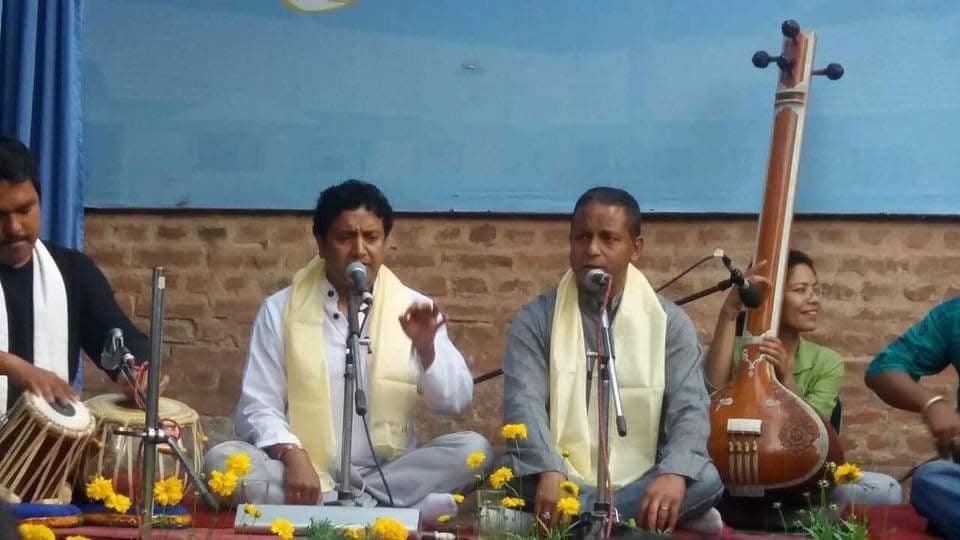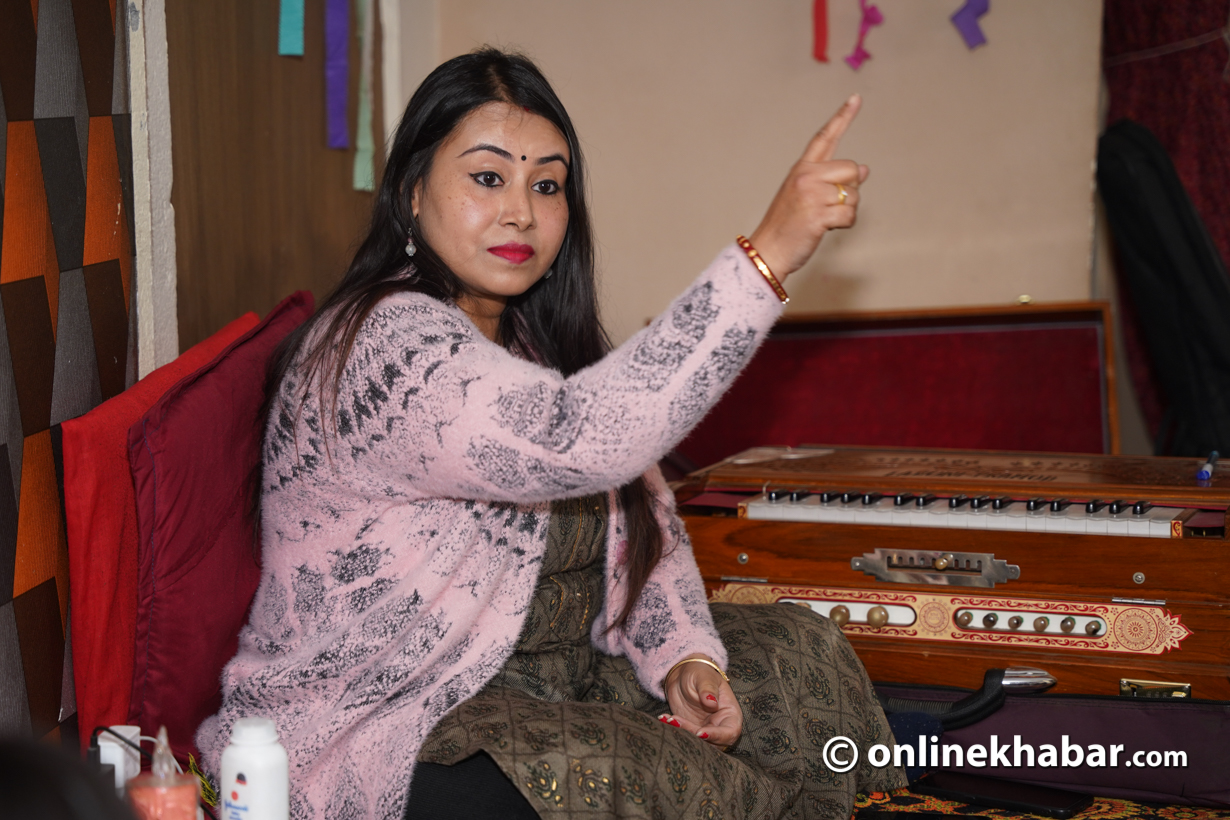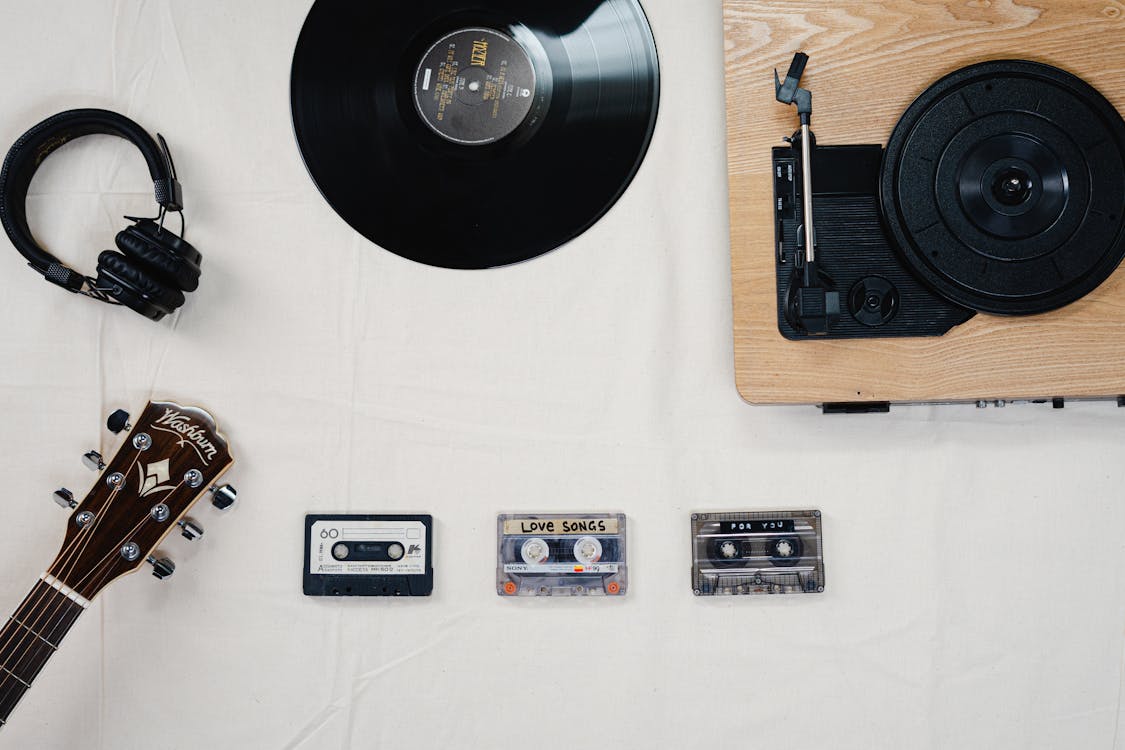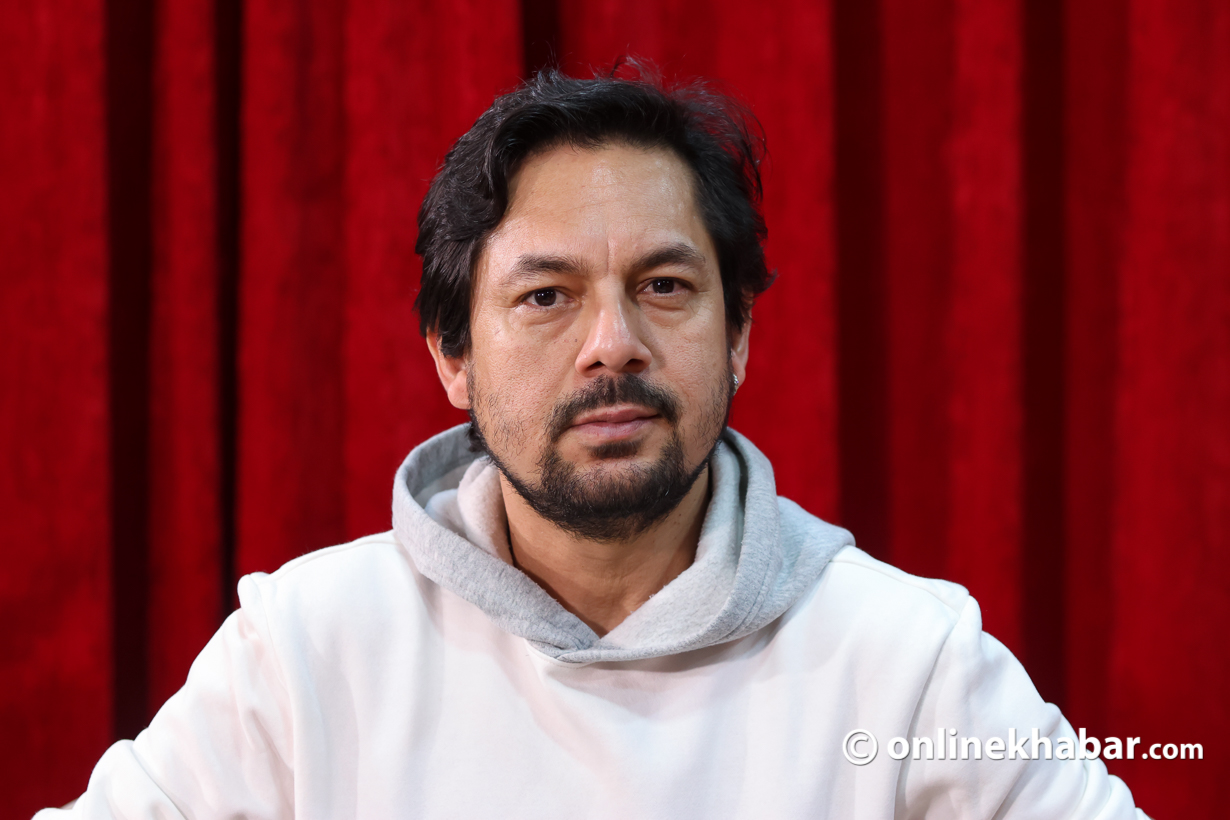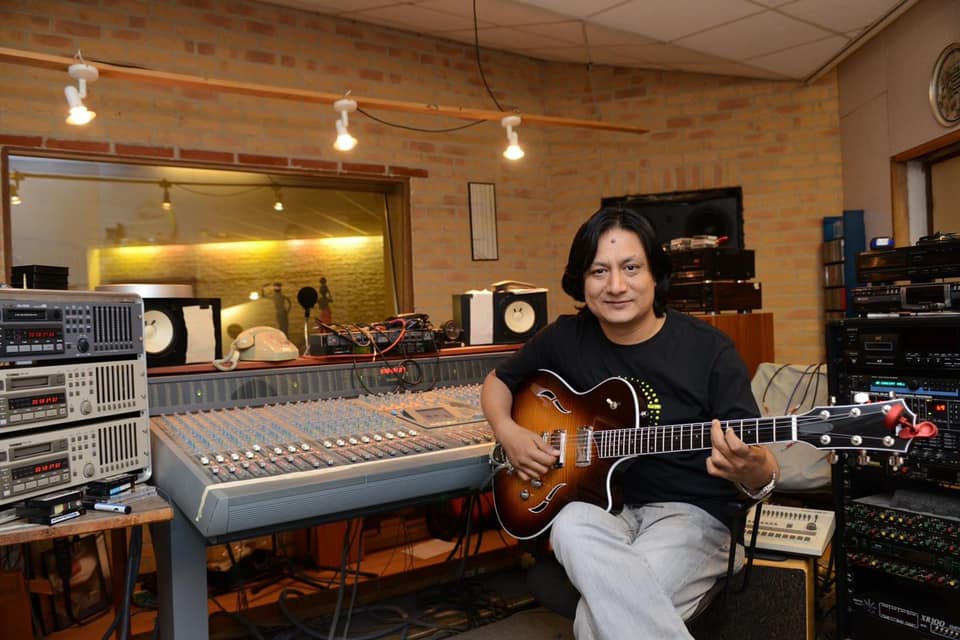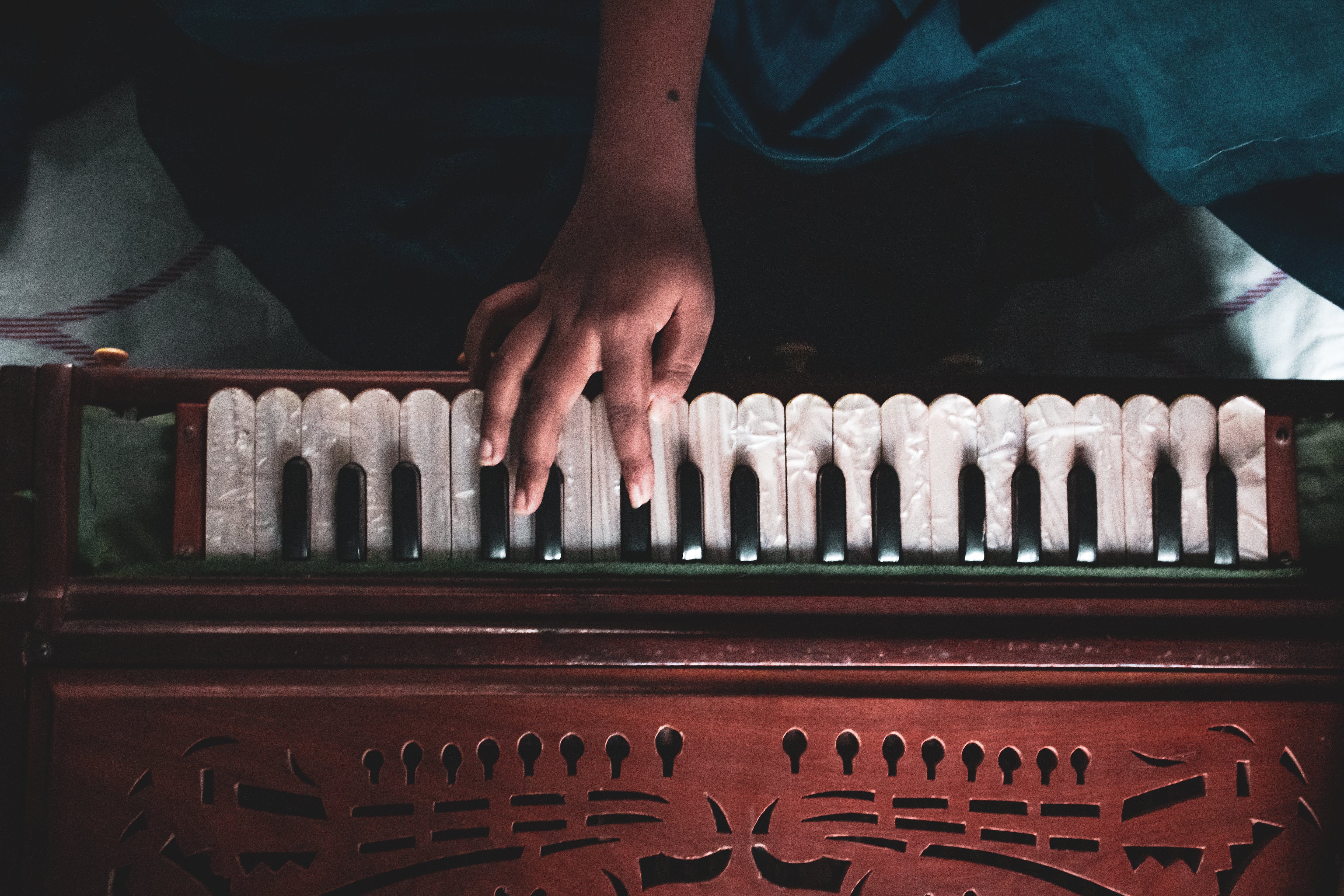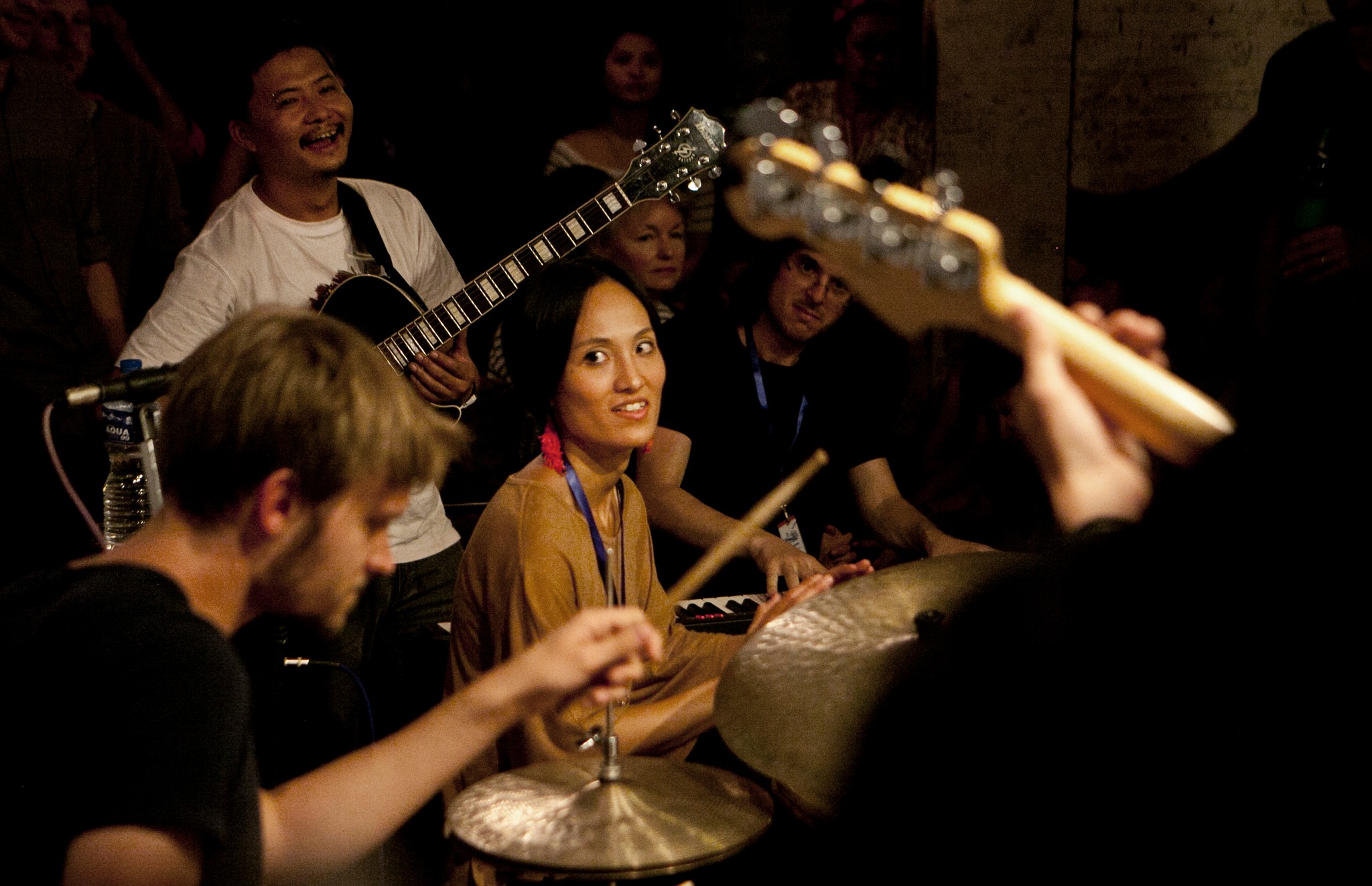Aryan Adhikari, when given a choice between learning sitar and guitar, chose the latter. For the 13-year-old, guitar, which he could carry with him everywhere, was a more appealing instrument. Like his friends, being a rockstar was all he cared about. Even though he knew that learning sitar and classical music would make him a better musician, the idea did not really appeal to him. He found it dull and boring.
“I want to be like Alex Turner (a lead member of the band Arctic Monkey). I want people to chant my name and bang their heads to my music. Playing the sitar won’t let me do that,” says Adhikari.
Adhikari is not alone when it comes to finding classical music boring. Even though a lot of people have been enrolling to take classical music at both Kathmandu University and Tribhuvan University and other institutes, not many continue its practice. They learn tips and techniques that will help them play guitar, piano or drums and after learning the basics, most quit to practise mainstream music.
Many argue that they do so due to lack of demand for classical music in the market. Others argue that it is due to a lack of patience amongst the students. But, with the music being heard and played lesser and lesser, especially in Kathmandu where it thrived, there is a fear amongst the musicians that the art form, which has been in existence since the time of the Vedas, is on the verge of being forgotten.
Glorious history
Classical music, however, has been a part of Nepali music for a long time. The music was protected and promoted by the rulers of Nepal. It flourished in the royal courts of the Mallas, Shahs and Ranas. The members of the royal family were trained in classical music. The singers were rewarded by the kings. They were revered.
“They were respected because the royals back in the day understood the music and its importance,” says Dhirendra Premarshi, the head of Department of Traditional and Classical Music at Nepal Academy of Music and Drama. “They knew that this music cured diseases and enhanced a way of life. But, with time, people started to forget its importance.”
With the advent of pop music and the influence from the West, classical music started to lose its appeal, especially in Kathmandu. When the hippies came, they brought with them their type of music. Artists like Bob Dylan, Jimmy Hendrix, Elvis Presley and the Beatles started dominating Kathmandu’s music scene in the 70s and beyond. Even Nepali singers started to adopt their styles and started releasing music. With that, classical music, which many believe originated in the Himalayas, started to take a back seat.
“The golden age for Nepali classical music was during the time of King Mahendra (Shah),” says singer Prabhu Raj Dhakal, who is an ethnomusicology professor at Kathmandu University. “After that, not much has been done in the field. The number of students interested in learning has definitely increased. But, very few are interested to carry on practising classical music.”

Shrinking ‘scope’
The reason, people who practise classical music say, is the lack of scope in the field. Uttam Ghosh, a student at Kathmandu University’s Department of Music, says he got into it because he knew he would become a better singer if he learnt classical music.
“I used to listen to a lot of AR Rahman and Kishor Kumar. Listening to them, I realised the importance of having a good base. I could sing, but I knew that all music has classical roots. Looking back, I’m glad I got into it,” says Ghosh.
But, he is aware that he will have to look at other options because the scope for classical music in Nepal is limited.
“We have teachers telling us this. They say that even they do not have places to perform. So as musicians, we have to look at other options because I feel that for the music to survive, musicians have to survive,” says Ghosh.
Dhakal agrees. He believes people who have been able to deeply understand classical music are scarce and adds that not enough has been done by stakeholders to promote classical music in Nepal. He believes that the lack of interest in singers to get into classical music is due to finances. If the money was good in this form of music, there would be more people who would be actively involved in research, he says.
“If you do not have new research, you will not get good music. But, you will not get researchers when the money is not there. At this rate, people will move to mainstream music because the money is there,” says Dhakal.
Glamour glitters
Another reason musicians say that classical music is not as popular is that it is not glamorous. Sunit Kansakar trained in classical music 27 years ago learning to play the sitar. But, as he did not find it glamorous, he decided to get into rock and roll and has been part of bands like Robin N’ Looza, Mukti & Revival.
“It is sad to say, but classical music is not glamorous,” says Kansakar who is a part of a fusion folk band called Kanta dAb dAb in which he plays the sitar. “Classical music has a lot of art in it, but when it comes to performance, I don’t think it is as appealing to the newer generation as hip-hop or rock and roll.”
He says it is about time that musicians adapted and changed the way they do music because people nowadays look for easy listens. He adds in today’s digital age, people only listen to music if it is visually appealing.
“People do not care about melody anymore. Only the connoisseurs look for that. The general public, they look for a good catchy beat and a flashy music video. So as musicians, we have to adapt with time,” says Kansakar.
Premarshi echoes his thoughts. While he says that the general public has not been able to understand classical music, he feels that musicians have been too rigid to adapt. As people are becoming more impatient, Premarshi says musicians should start composing shorter songs.
“For the new generation to get into this, we have to make it more attractive. No one will sit and watch a musician play for 45 minutes because, for a new audience, it can get monotonous,” he says.

Not enough experimentation
Kuran Punj, a classical singer says that another reason why the music form has not been able to take a leap forward is that singers do not like experimenting. He says that he tries to sing in a similar manner like his guru Dhakal does, but he realises that he is not doing anything new.
“When I perform a set which is 30 minutes long, there are times when I feel it is monotonous. I can only imagine what the audience feels like,” says Punj.
But, for singers to experiment, they need a stage. Currently, only a handful of places give space to classical musicians. The Kirateshwar temple in Pashupati area and Yala Maya Kendra in Patan host monthly shows, but Premarshi says that is not enough. He feels that the mainstream media needs to help them promote classical music. He says that the media has not been supportive and gives an example of a recent conference hosted by his department at the academy.
“We went to TV stations to ask them to broadcast our show. There’s nothing on the TV anyway, yet they asked us for a large sum which we just did not have. It was quite discouraging,” he says.
Dhakal has a similar feeling. He says that when he started off his career, there were multiple shows being aired both on Radio Nepal and Nepal Television. He says he made regular appearances with his father, classical music pioneer Nara Raj Dhakal. But, classical music is not given any space. Much of that is due to the demand of the audience.
“I understand that people want to listen to mainstream music. But, I think the people who run these programmes on TV and radio or even write about music are those who do not understand music,” says Dhakal.
Everyone is looking for more views and want to be viral, says Dhakal, which is why the mainstream media has turned a blind eye to classical music.
Vishal Bhattarai, who is the founder of Dhrupad Gurukul, an institute which teaches dhrupad-style classical music, says that classical music will never be able to compete with commercial music. He says that this form of music will never be commercial. However, he says that it is a form of cultural heritage and the government should do more to preserve it.
“Earlier, the royal courts preserved it. Now, the bodies that have been given the responsibility are not doing enough. It is limited to Kathmandu and it does not even get the space here. It needs to reach other places in the country, only then can the music develop.”



